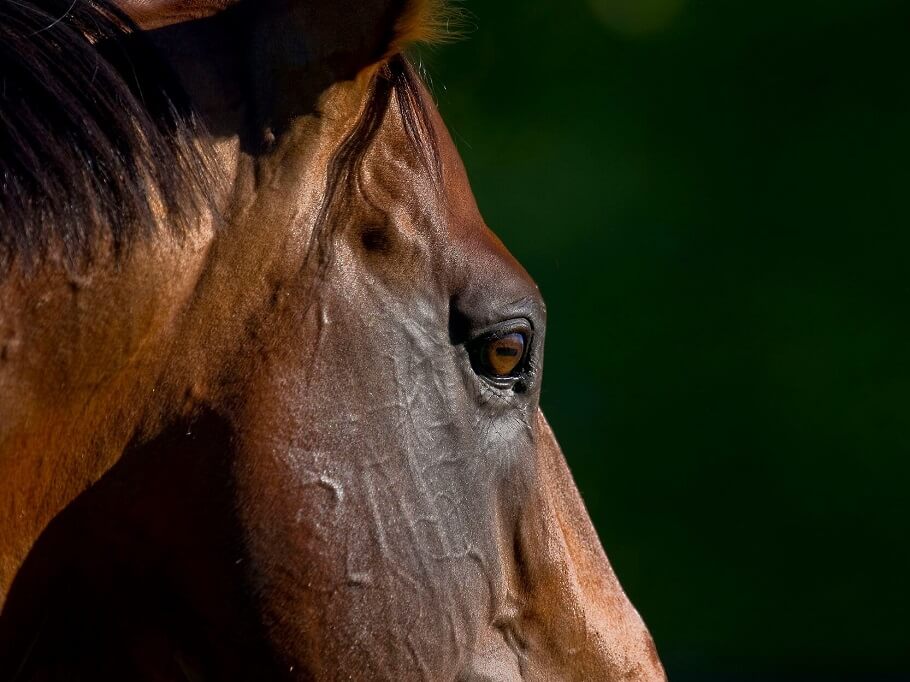Keep an eye on it

Finding your horse with a painful eye is a fairly common problem, and can be particularly concerning for any horse owner. Signs of a painful eye may include:
- the eyelids being shut more than normal (as if the horse is squinting),
- excessive tearing,
- inflamed conjunctiva (the inner lining of the eyelids),
- cloudy cornea (the surface of the eye).
There are many causes of a painful eye, some of which are very serious, so prompt veterinary attention is recommended. In order to diagnose what is wrong with your horse’s eye, a full ophthalmic exam may be necessary. This usually involves sedation, local anaesthesia of the top eyelid, and applying a stain to the cornea (this will show up any defects in the corneal surface). Some of the more common conditions are outlined below:
Conjunctivitis: This may be infectious or as a result of trauma. The membranes of the eye are usually very swollen and reddened, and this may make it difficult to see any of the cornea.
Corneal ulceration: The most common problem affecting equine eyes. The ulcer is usually initiated by trauma. Once the cornea becomes damaged it becomes vulnerable to bacterial and sometimes fungal infection. Most uncomplicated ulcers resolve with a short course of topical antibiotics applied directly into the eye. However, some ulcers deteriorate into “melting” ulcers with significant corneal damage, requiring prolonged antibiotic therapy and possibly even surgery. Some corneal injuries may lead to a deep seated infection in the cornea, resulting in the formation of a corneal abscess. As with melting ulcers, these can be very difficult to treat.
Uveitis: Inflammation of the central structures of the eye, and often occurs secondary to significant corneal damage (eg a melting ulcer). Failure to adequately treat uveitis can result in the formation of fibrin stands within the anterior chamber of the eye, which can have a severe impact on vision.
Most horses tolerate topical therapy very well, however, some will become reluctant (particularly when prolonged treatment is required). In this case, the use of a sub-palpebral lavage system may be necessary. Conditions affecting the equine eye are prone to rapid deterioration without the correct management, so timely veterinary examination is essential!
